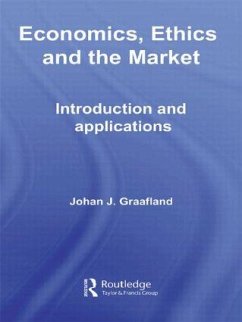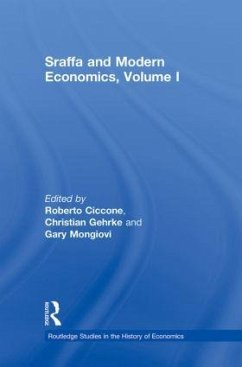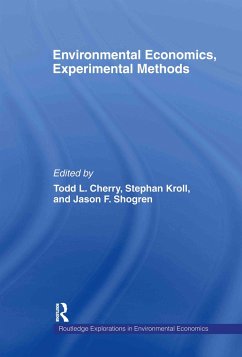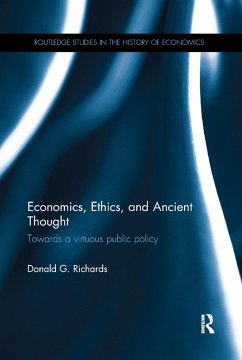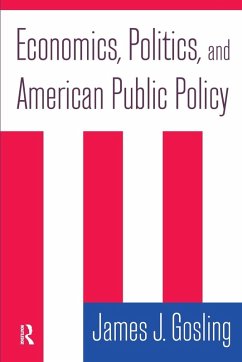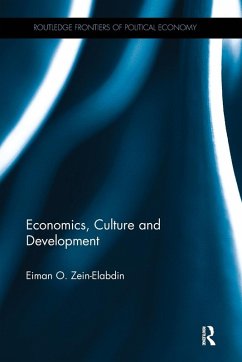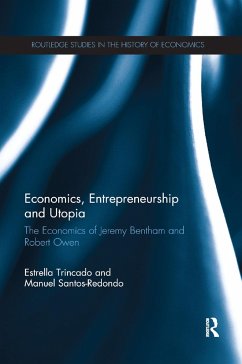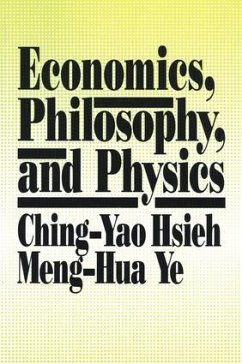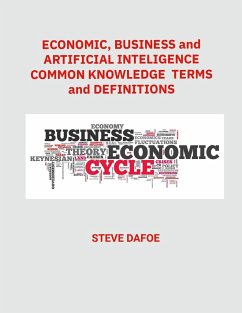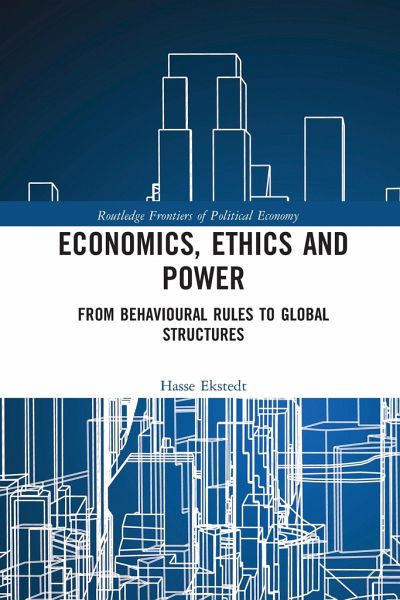
Economics, Ethics and Power
From Behavioural Rules to Global Structures
Versandkostenfrei!
Versandfertig in 1-2 Wochen
56,99 €
inkl. MwSt.
Weitere Ausgaben:

PAYBACK Punkte
28 °P sammeln!
Economic theory in its neoclassical form is sometimes regarded as free from values; it is simply the theory of economic exchange. This can only hold true if we accept the idea of "Homo Economicus" and the equilibrium economy. But in the real world, away from neoclassical models, there is no intrinsic stability as such. Instead, stability is created by the surrounding social, cultural and political structures. Clearly, it is imperative that ethics features in the analysis of these economic and socio-political structures. Drawing on Aristotle, Kant, Hume and others, this book conceptualizes the ...
Economic theory in its neoclassical form is sometimes regarded as free from values; it is simply the theory of economic exchange. This can only hold true if we accept the idea of "Homo Economicus" and the equilibrium economy. But in the real world, away from neoclassical models, there is no intrinsic stability as such. Instead, stability is created by the surrounding social, cultural and political structures. Clearly, it is imperative that ethics features in the analysis of these economic and socio-political structures. Drawing on Aristotle, Kant, Hume and others, this book conceptualizes the analysis of ethics and economic and social structures. It first considers the key philosophical underpinnings and categories which frame the discussion of ethics in economic theory and then considers individual ethics, social action, financial structures and war. Throughout, ethics are examined in a multicultural context with structural complexities, and the difficulties in finding a coherent set of ethics which provides social cohesion and an open society are considered. A key part of this is the comparison of two ethical principles which can be adopted by societies: ius soli or loyalty to constitution, and ius sanguinis or loyalty to "Blood and Soil". The latter is argued to lead to problems of Us and the Other. Introducing the possibility of integrating microscopic ethics into socio-political structures and proposing the eventual existence of a global ethics, this volume is a significant contribution to the emerging literature on economics, social structures and ethics. It will be of particular interest to those working in business and public administration and who have an education in socio-economic areas, but it also has a broad appeal to students and academics in the social sciences.





